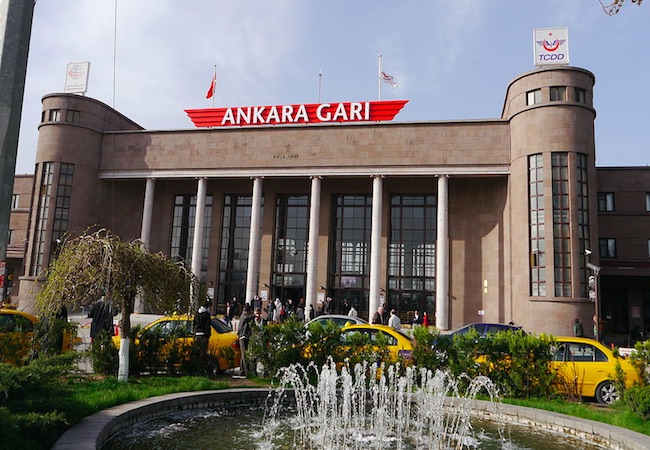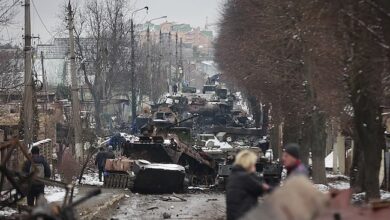Death toll of Turkey’s deadly twin blasts rises to 95

Death toll of the deadly twin blasts that hit a train station in the Turkish capital Ankara on Saturday rose to 95, according to an official statement issued by the office of Prime Minister Ahmet Davutoglu.
The explosions rocked the train station where several unions, civic society organizations and pro-Kurdish People’s Democracy Party were due to hold a rally.
The rally aimed to protest conflict between the state and Kurdish militants in southeast Turkey.
Hundreds of people had gathered at the station when the blasts occurred, private Dogan news agency reported.
There were no claims of responsibility for the attack.
Witnesses said the first blast took place in front of a train station and the second occurred across the station.
Turkish President Recep Tayip Erdogan condemned the attack, which he said targeted the unity of the country.
The pro-Kurdish Peoples’ Democracy Party (HDP) leader Selahaddin Demirtas blamed the government for the explosions, saying that it was impossible for the Turkish intelligence to not know about the plot.
“They (authorities) even prevented the ambulances from coming (to the scene), they wanted the toll to increase,” he said, accusing the state of turning into mafia and murderer.
However, the health ministry denied the accusations, saying that 55 ambulances were dispatched to the scene and 10 were kept on standby.
Meanwhile, the Turkish government has declared a three-day mourning to commemorate victims of the attacks.
“Let’s stand shoulder to shoulder against terrorism,” Prime Minister Ahmet Davutoglu said as he declared the official mourning at a press conference in Ankara, promising that the authorities will find the perpetrators of the attack and announcing that he plans to talk with the leaders of the opposition Republican People’s Party (CHP) and the Nationalist Movement Party (MHP).
Ankara is set to hold snap elections on Nov. 1 amid increased tension and polarization among major political parties that failed to form a coalition government in June elections.
Turkey resumed offensive against the outlawed Kurdish Workers’ Party (PKK) in late July after two policemen were killed by the terrorist group, apparently in retaliation for a suicide bombing in the Suruc district of southeastern province Sanliurfa on July 20, which killed 34 pro-Kurdish activists and was blamed on the Islamic State (IS).
Violence has since escalated sharply, with the PKK stepping up attacks on security forces. More than 100 members of Turkish security have been killed in clashes.
Hours after the blasts, the PKK called on its fighters to halt activities for a “fair and just election” in Turkey unless they face an attack, a news website close to the organization said.
The PKK is designated a terrorist organization by Turkey, the European Union and the United States.




